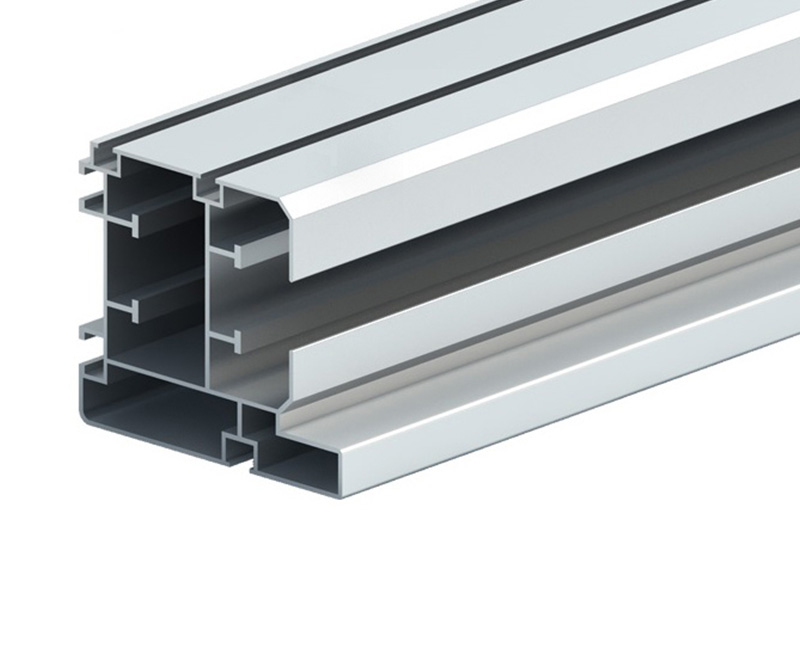Your Position: Home - Aluminum Profiles - Everything you need to know about aluminum profiles
1. Characteristics of aluminum profiles:
Lightweight and high strength: The density of aluminum profiles is relatively low, but the strength is high, which makes it an ideal lightweight structural material. Under the same carrying conditions, the use of aluminum profiles can greatly reduce the weight of the structure and improve the stability and safety of the overall structure.
Excellent corrosion resistance: Aluminum profiles have excellent corrosion resistance and can maintain good performance even in humid and corrosive environments.;
Good electrical and thermal conductivity: Aluminum profiles have good electrical and thermal conductivity, which are suitable for the production of electrical equipment and heat conduction equipment. Their electrical conductivity is second only to that of copper.;
Easy to process and form: Aluminum profiles have good processability and formability, and can be processed by cutting, drilling, bending, welding and other processes to meet the needs of different shapes and sizes.;
Environmentally friendly and recyclable: Aluminum profiles are a kind of recyclable metal material with high recycling rate and friendly to the environment.;
2. Types of aluminum profiles:
Familiar with the types of various aluminum profiles, and know the applications of various profiles well, it will be more convenient to design the details of the program design.;
Classification by purpose: building aluminum profiles, radiator aluminum profiles, industrial aluminum profiles, rail vehicle structure aluminum alloy profiles, mounted aluminum profiles, etc.;
Classification by alloy composition: According to the different alloy composition, aluminum profiles can be divided into different grades, such as 1024, 2011, 6063, 6061, 6082, 7075, etc.;
Classified according to different applications:
General profile series, manipulator profile series, double speed chain profile series, lean pipe profile series, European standard series, national standard series, protective fence series profiles, etc.;

3. Connection method of aluminum profile:
There are many connection methods for aluminum profiles. There are the following common connection methods. You can refer to the design.:
3.1 Angle code connection: Two or more aluminum profiles are connected together by angle code. The angle code can be different angles such as 90°, 45° or 135° to meet different connection needs.;
3.2 Screw connection: Use screws to fix the aluminum profiles together. This connection method is simple and fast, and it is suitable for simple profile connections.
Further reading:3.3 Notch connection: Use the notches of aluminum profiles for connection, such as L-shaped corner groove connectors, high-strength corner groove connectors, etc. This connection method has high strength and good stability.
3.4 Welding connection: For some occasions where high-strength connection is required, the aluminum profiles can be connected together by welding. However, it should be noted that not all aluminum profiles are suitable for welding, and they need to be selected according to specific material and process requirements.
4. Principles of selection of aluminum profiles:
When choosing aluminum profiles, the following principles need to be followed:
Choose according to application scenarios: different application scenarios have different performance requirements for aluminum profiles, and suitable aluminum profile types and specifications need to be selected according to the actual situation.;
Consider strength and hardness: according to the pressure and stress on the aluminum profile, choose a material with sufficient strength and hardness to ensure the safety and stability of the structure.;
Consider corrosion resistance: Aluminum profiles used in corrosive environments need to have good corrosion resistance to extend their service life.;
Consider processability: select the appropriate aluminum profile according to the processing needs to facilitate subsequent cutting, drilling, bending and other processing operations;
Consider cost factors: Under the premise of meeting the requirements of use, try to choose aluminum profiles with a high price ratio to reduce costs.;
V. Applications of aluminum profiles:
Construction field:
Aluminum profiles are widely used in the construction field, such as doors and windows, curtain walls, indoor and outdoor decoration, etc.;
Industrial field:
Industrial aluminum profiles play an important role in mechanical automation, production lines, equipment racks and other fields;
Transportation field:
Aluminum alloy profiles for rail vehicle structures are an important material in the rail transit industry and are used in the manufacture of vehicle bodies, connectors and other components.
120
0
0
Comments
All Comments (0)